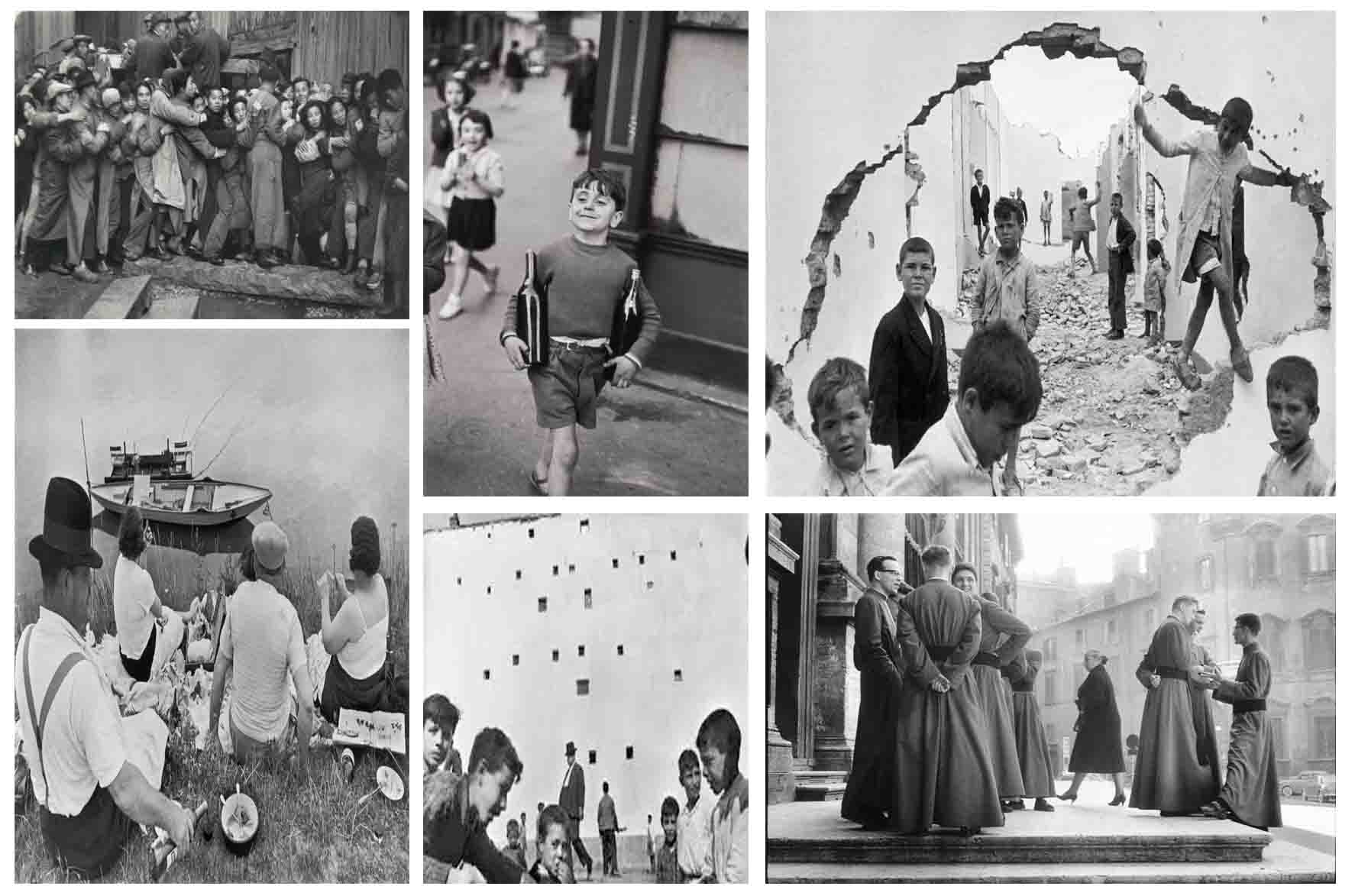Henri Cartier-Bresson was a French humanist photographer considered a master of candid photography, and an early user of 35 mm film. He pioneered the genre of street photography, and viewed photography as capturing a decisive moment.
Henri Cartier-Bresson was born in Chanteloup-en-Brie, Seine-et-Marne, France, the oldest of five children. His father was a wealthy textile manufacturer, whose Cartier-Bresson thread was a staple of French sewing kits. His mother’s family were cotton merchants and landowners from Normandy, where Henri spent part of his childhood. The Cartier-Bresson family lived in a bourgeois neighborhood in Paris, Rue de Lisbonne, near Place de l’Europe and Parc Monceau. His parents supported him financially so Henri could pursue photography more freely than his contemporaries. Henri also sketched.
Cartier-Bresson recuperated in Marseille in late 1931 and deepened his relationship with the Surrealists. He became inspired by a 1930 photograph by Hungarian photojournalist Martin Munkacsi showing three young African boys, caught in near-silhouette, running into the surf of Lake Tanganyika. Titled Three Boys at Lake Tanganyika, this captured the freedom, grace and spontaneity of their movement and their joy at being alive. That photograph inspired him to stop painting and to take up photography seriously. He explained, “I suddenly understood that a photograph could fix eternity in an instant.”


In this picture, you can clearly see the rubble of what were once houses, and the victims of the attack gathered around. It’s a grim sight to see, however while some of the children are staring at the camera glumly, other in the background seem to be ignoring what was around them and continuing on with their day, playing around and throwing things , seeming unaware of the photographer. The boarder draws our attention to the destroyed buildings in the background. Changing this photo into one without colour adds a strong emphasis to how grim this scene is. They’ve lost their homes and it seems like Bresson wanted to make their feelings obvious to the viewer.
